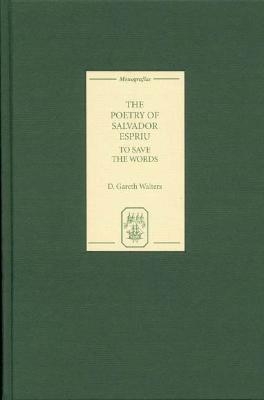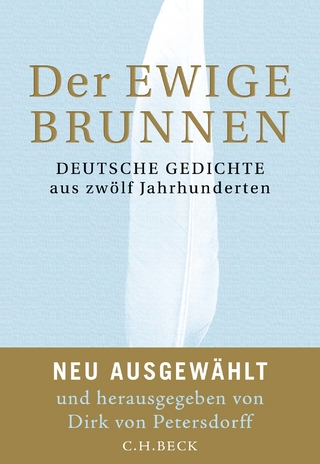
The Poetry of Salvador Espriu
To Save the Words
Seiten
2006
Tamesis Books (Verlag)
978-1-85566-132-5 (ISBN)
Tamesis Books (Verlag)
978-1-85566-132-5 (ISBN)
- Titel ist leider vergriffen;
keine Neuauflage - Artikel merken
The first book-length study in English of the poetry of Salvador Espriu [1913-85].
Two standpoints govern the approach taken to the poetry of Salvador Espriu [1913-85] in this first extended study of his work in English. First, the author explores the structural implications of symmetry and numerology, in a chronological rather than thematic survey of the poetry - a procedure that involves a consideration of how each book [what could be termed in most cases a macro-poem] attains its distinctive character while having common preoccupations and stylistic traits. Secondly, he examines the tension implicit in Espriu's poetry between involvement and detachment or between the civic and the lyric. One issue addressed is why Espriu is perceived both as the symbol of moral resistance against Francoism and as a hermetic, 'difficult' poet. Central to the study is an awareness of the precarious status of the Catalan language in the period when Espriu wrote most of his poetry, and of how his work represents, by dint of its linguistic character, an act of defiance and affirmation, in Delor's view, a 'metalinguistic literature'.
D. GARETH WALTERS is Professor of Hispanic Studies at the University of Swansea.
Two standpoints govern the approach taken to the poetry of Salvador Espriu [1913-85] in this first extended study of his work in English. First, the author explores the structural implications of symmetry and numerology, in a chronological rather than thematic survey of the poetry - a procedure that involves a consideration of how each book [what could be termed in most cases a macro-poem] attains its distinctive character while having common preoccupations and stylistic traits. Secondly, he examines the tension implicit in Espriu's poetry between involvement and detachment or between the civic and the lyric. One issue addressed is why Espriu is perceived both as the symbol of moral resistance against Francoism and as a hermetic, 'difficult' poet. Central to the study is an awareness of the precarious status of the Catalan language in the period when Espriu wrote most of his poetry, and of how his work represents, by dint of its linguistic character, an act of defiance and affirmation, in Delor's view, a 'metalinguistic literature'.
D. GARETH WALTERS is Professor of Hispanic Studies at the University of Swansea.
Part One: Definitions and Interpretations - D. Gareth Walters
Part Two: The Palindromic Cycle - D. Gareth Walters
Part Three: The Later Poetry - D. Gareth Walters
Part Four: Summation and Conclusion - D. Gareth Walters
| Erscheint lt. Verlag | 21.9.2006 |
|---|---|
| Reihe/Serie | Monografías A |
| Co-Autor | D. Gareth Walters |
| Verlagsort | Woodbridge |
| Sprache | englisch |
| Maße | 156 x 234 mm |
| Themenwelt | Literatur ► Lyrik / Dramatik ► Lyrik / Gedichte |
| ISBN-10 | 1-85566-132-2 / 1855661322 |
| ISBN-13 | 978-1-85566-132-5 / 9781855661325 |
| Zustand | Neuware |
| Haben Sie eine Frage zum Produkt? |
Mehr entdecken
aus dem Bereich
aus dem Bereich
Deutsche Gedichte aus zwölf Jahrhunderten
Buch | Hardcover (2023)
C.H.Beck (Verlag)
28,00 €
Text, Übersetzung, Melodien, Kommentar
Buch | Softcover (2024)
De Gruyter (Verlag)
24,95 €


